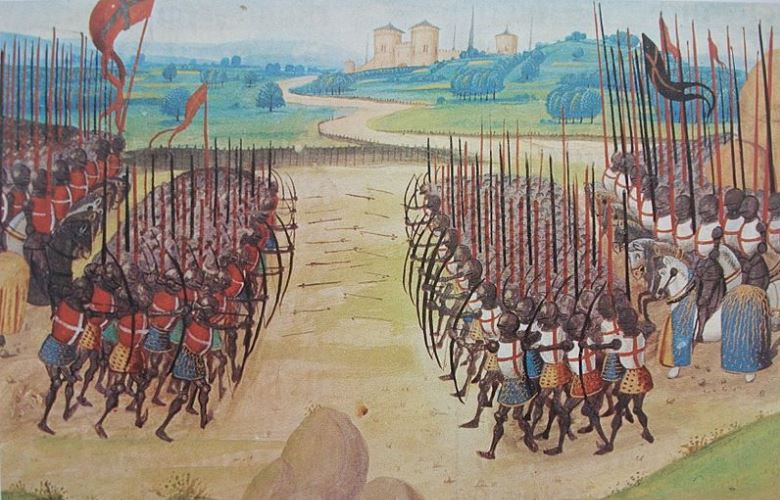Every nation has its own ‘Patron Saint’ who in times of great peril is called upon to help save the country from its enemies. Saint David is the Patron Saint of Wales, Saint Andrew of Scotland and Saint Patrick of Ireland – St George being the Patron Saint of England. St George’s Day is celebrated, and his flag flown, on his feast day of 23 April.
St George is also celebrated as the Patron Saint of Bulgaria, Ethiopia, Greece, Georgia, Portugal, Romania, Syria, Lebanon, Catalonia, Alcoi, Aragon, and Rio de Janeiro. St George is also celebrated in the Eastern Orthodox Church traditions.
But who was St. George, and what did he do to become England’s Patron Saint?
Very little is known about St. George’s life, but it is thought he was a high ranking officer in the Roman army who was killed in around AD 303.
It seems that the Emperor Diocletian had St. George tortured to make him deny his faith in Christ. However despite some of the most terrible torture even for that time, St George showed incredible courage and faith and was finally beheaded near Lydda in Palestine. His head was later taken to Rome where it was interred in the church dedicated to him.
Stories of his strength and courage soon spread throughout Europe. The best-known story about St. George is his fight with a dragon, but it is highly unlikely that he ever fought a dragon, and even more unlikely that he ever visited England, however his name was known there as early as the eighth-century.
St. George, so the story goes, killed a dragon on the flat topped Dragon Hill in Uffington, Berkshire, and it is said that no grass grows where the dragon’s blood trickled down!
It was probably the 12th century Crusaders however who first invoked his name as an aid in battle.

Battle of Agincourt – English knights and archers wearing the cross of St. George
King Edward III made him the Patron Saint of England when he formed the Order of the Garter in St. George’s name in 1350, and the cult of the Saint was further advanced by King Henry V, at the battle of Agincourt in northern France.
Shakespeare made sure that nobody would forget St. George, and has King Henry V finishing his pre-battle speech with the famous phrase, ‘Cry God for Harry, England and St. George!’
King Henry himself, who was both warlike and devout, was thought by his followers to possess many of the saint’s characteristics.
A Prayer for Saint George’s Day
God of hosts,
who so kindled the flame of love
in the heart of your servant George
that he bore witness to the risen Lord
by his life and by his death:
give us the same faith and power of love
that we who rejoice in his triumphs
may come to share with him the fullness of the resurrection;
through Jesus Christ your Son our Lord,
who is alive and reigns with you,
in the unity of the Holy Spirit,
one God, now and for ever.
Amen.
On Sunday 21 April 2024, Linda at Saint Stephen’s, Tala, Cyprus, included this about Saint George in her prayers:
“As we approach St George’s Day, we pray that we may be like your servant George who did not give up on what he believed was right. Help us to stand for what is right and be respectful of others who we do not fully understand. We pray for those who are persecuted for their faith, give them the courage to remain faithful to you and remind them that you are always with them in times of trouble. We pray for those who face rejection in their culture and family as a result of becoming a Christian and for those who face imprisonment or death as they share your gospel with others. Protect them, give them wisdom and shield them from those who would report their actions.”
Saint George is also celebrated in Cyprus. There is the amazing Agios Georgios Chapel in Peyia built in celebration of Saint George which is well worth a visit!


